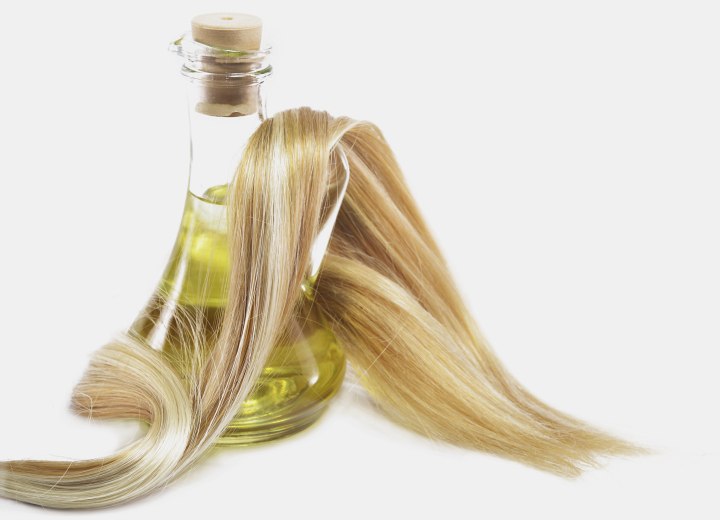Remove Canola Oil

A: Since the adhesive residue is still present, your first priority should be fully removing the leftover glue before tackling the oil. Different extension adhesives require specific removal methods, so I strongly recommend consulting the stylist who installed your extensions or checking the adhesive manufacturer’s instructions. Without knowing the exact product used, I can’t provide precise advice on glue removal.
To remove the canola oil, you have a few effective options:
1. Astringent Rinse: Witch hazel is an excellent natural astringent that helps cut through oil. Alternatively, you can mix ½ cup of lemon juice with 1 cup of cool water and apply it to your hair. Let it sit for a few minutes before rinsing thoroughly.
2. Clarifying Shampoo: Visit a beauty supply store and pick up a high-quality clarifying shampoo designed to deep-cleanse hair and remove buildup. These shampoos are formulated to strip away excess oils and residues without being overly harsh.
3. Dish Liquid & Shampoo Mix (Emergency Option): If you’re in a pinch, combine a small amount of degreasing dish liquid (like Dawn) with your regular shampoo. Lather the mixture into your hair, let it sit for 5 minutes, then rinse with warm (not hot) water. Follow up immediately with a rich conditioner, leaving it in for at least 5 minutes before rinsing with cool water to seal the hair cuticle.
After cleansing, apply a silicone-based smoothing serum to help detangle and protect your hair while combing. The clarifying or degreasing process may require 2–3 applications before all the oil is fully removed, so be patient. If your hair feels dry afterward, use a deep conditioning treatment to restore moisture.
For stubborn glue residue, you might also try rubbing alcohol on a cotton pad to gently dab at small sections. But be cautious, as alcohol can be drying. Always follow up with conditioner to keep your hair hydrated.
©Hairfinder.com
See also:
Hair extensions
How to remove glued in hair extensions